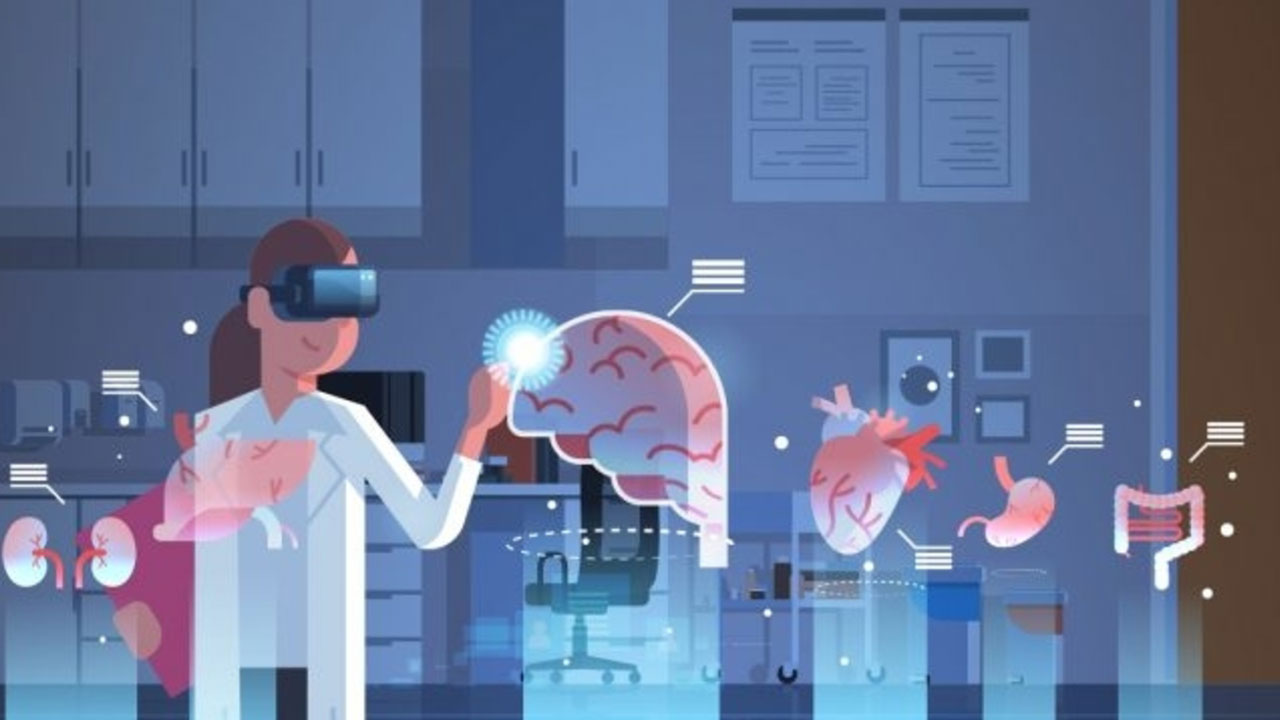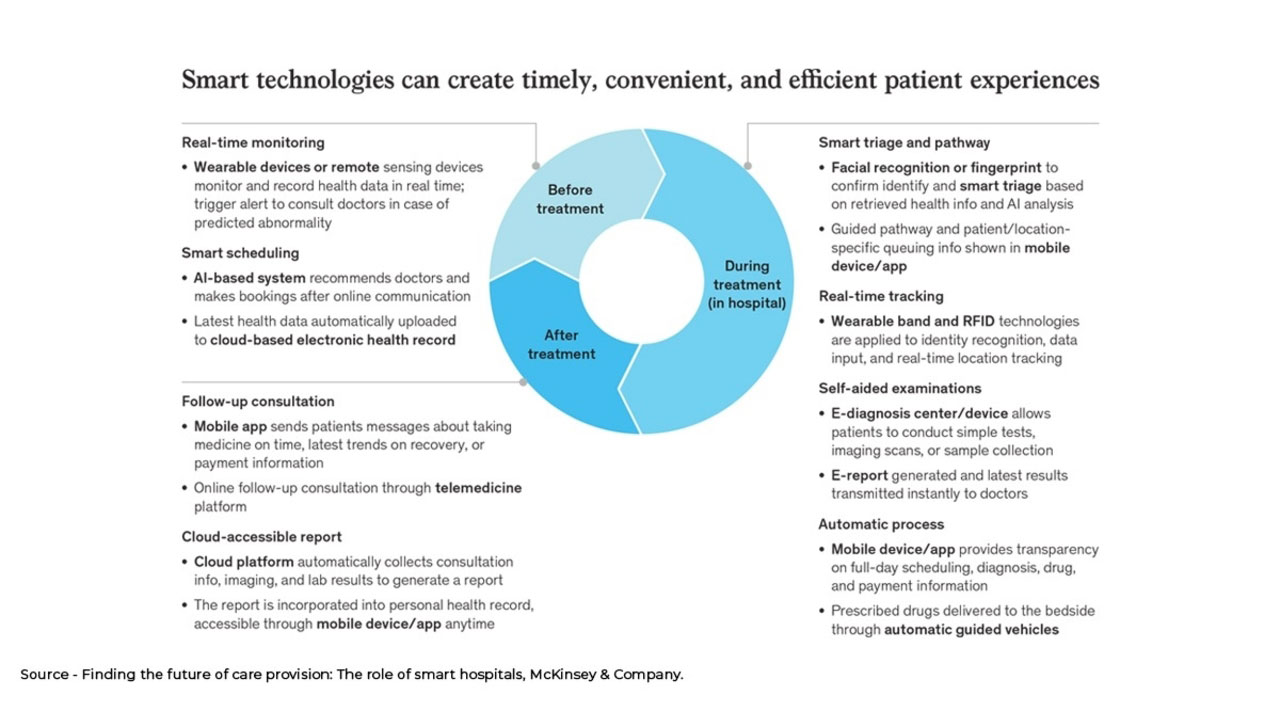The Future of Digital Healthcare and Patient Monitoring
The Evolution of Healthcare
The Future: Healthcare 3.0
While Healthcare 2.0 is a leap from the earlier era, there are still areas that are lacking such as electronic medical records and data digitisation. But, this is set to change as the adoption of disruptive technologies for virtual care is increasing. The private healthcare sector will rethink its models in keeping with current trends and technological changes. The COVID-19 pandemic is accelerating this change as the country’s healthcare infrastructure bends under the burden.
This evolution is happening quickly as evidenced from a 2019 report by Future Health Index (FHI) which shows that –
- India leads the way in the adoption of digital health technology.
- As much as 76% of healthcare professionals use digital health records (DHRs).
Predictions of Healthcare 3.0
The internet and mobile connectivity have transformed India’s consumption patterns in the past decade, directly influencing business models, including that of the healthcare sector. Digitisation has increased access to banking and insurance services, transport and more from virtually anywhere. This trend is impacting access to healthcare as well.
Smarter Patients
The following patient behaviour changes are predicted:
- Self-care: The next decades will see patients becoming more educated about healthcare. They will learn to manage their health better. This self-care will be driven by the use of wearable devices, remote support services, and electronic health records.
- Awareness: Thanks to increasing internet and mobile connectivity, patients in urban and rural areas have access to healthcare-related information like never before. They can stay up-to-date on the latest trends and news.
- Transparency: With patients more informed, there will be a demand for transparency of healthcare costs, facilities, credentials of care providers, treatment options and safety. This will compel caregivers to maintain a higher standard of care and trust.
- Participation: The passive role of patients will change to an active one. The healthcare system will become patient-driven as consumers play an active role in decision-making towards their health.
Reshape of the Healthcare Ecosystem Using Disruptive Technologies
Artificial Intelligence
It’s predicted that AI will deliver better care and help bridge the gap between doctors and other care providers in India. While AI is being used for diagnoses and treatment planning of chronic conditions and cancer, it will play a bigger role in drug discovery, primary care and clinical decision support systems (CDSS). The goal will be to reduce the burden on hospitals, and assist caregivers – not replace them.
Internet of Things
IoT or the Internet of Things will assist care providers in health monitoring, asset maintenance, equipment tracking and more. Connected medical devices will track patients’ health while devices such as smart medication dispensers will assist patients in self-care efforts. IoT will also be applied to emergency care units, transfer of patient data, besides monitoring, and gamification of health and wellness.
Implantable devices will see greater popularity as they will provide care to chronic patients. They will be used to monitor patient health and transmit the data to care providers who can advise treatment as and when needed. As technology advances, implantables will be able to predict the onset of epileptic episodes and other conditions.
Remote Patient Monitoring
Hospitals are augmenting their operations with the help of remote patient monitoring or RPM. In the future, in-home patient monitoring will become common as telehealth devices become more affordable. Using connected devices, doctors and clinics will be able to reach patients in various locations and provide care in real-time.
Shift to Preventive Care
With patients becoming active participants in their healthcare, there’s a steady shift towards preventive care. This will lead to progressive care models that reflect technological advancements.
Digital Care Centres
Digital care clinics will grow to provide patient care through remote patient monitoring, telemedicine, medicine dispensers, and referral management software.
Air Ambulances
A lack of hospitals in rural areas as well as increasing traffic in urban regions will see air ambulances being used for emergency response management systems.
Virtual Care
As patients become smarter, apps and AI-enabled chatbots will facilitate virtual care in the primary care, wellness and fitness segments.
On-demand Care
Patients will opt for 24/7 on-demand healthcare services including for virtual consultations, sample collections and OPDs. Care providers will need to reimagine their existing care models to accommodate this demand.
Integrating Technology with Healthcare: Call of the Majority
It is not just technological advancements that influence healthcare; a majority of people want it to play a bigger role in their health too. According to a survey by Edelman Intelligence:
- 68% of respondents want technology to be used to share real-time medication information with their caregiver.
- 64% want technology to aid their caregiver with diagnosis and treatment options.
- 61% want technology to help them maintain their health.
- 54% agree that technology has improved their relationship with their care provider.
How Healthcare Leaders Can Step Up Efforts
Tapping into Innovation Opportunities
The scope of healthcare innovation is huge. Healthcare leaders will explore opportunities to devise strategies for care delivery using emerging technologies. These frontrunners will innovate solutions to expand the reach of healthcare in urban and rural areas.
Creating Innovation DNA
Healthcare leaders can leverage DARQ (Distributed ledger technology (DLT), Artificial intelligence (AI), extended Reality and Quantum computing) to augment organisations’ competencies. With this, they can build their DNA to create better healthcare solutions and provide more access to quality care.
Making Innovation a Core Value
By placing innovation at the centre, healthcare leaders can ensure the delivery of improved health systems, especially for vulnerable populations. Over time, the economic impact of diseases will reduce, chronic diseases will be managed better, and life expectancy will increase.
MedTel’s multi-channel approach aims to augment the strength of traditional healthcare delivery using advanced technologies. It serves as a single point centre for patients seeking care. Through end-to-end RPM, a device-agnostic platform with support for more than 15 connected devices, and an integrated WhatsApp health bot, diagnoses and treatments are managed seamlessly. Further, MedTel’s solutions are highly customisable to facilitate seamless integration with EMR applications.

